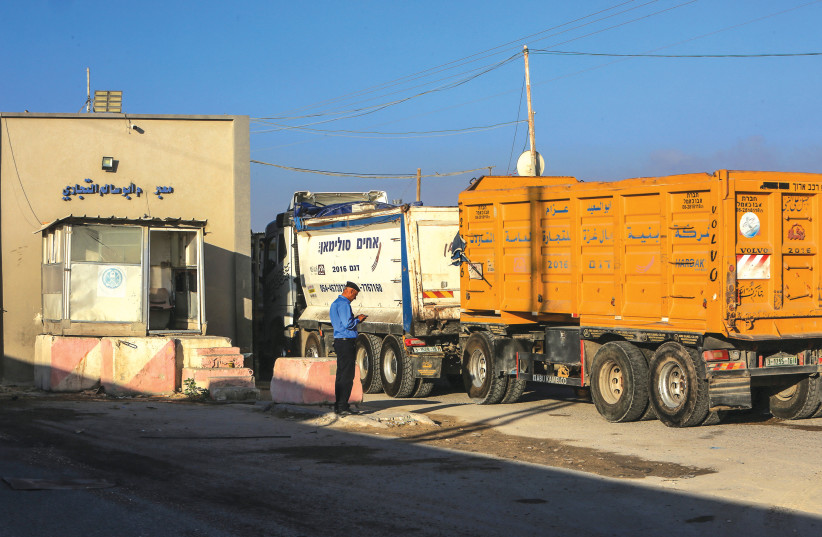UK warns Israel of the consequences of Gaza hunger
The United Kingdom warned Israel of the consequences of Gaza hunger during meetings Minister-without-a-portfolio Benny Gantz held in London on Wednesday, following talks in Washington, as both world powers urged Israel to do more to provide humanitarian assistance to Palestinians in the enclave.
“The UK supports Israel’s right to self-defense. But as the occupying power Israel has a legal responsibility to ensure that aid is available for civilians,” UK Foreign Secretary David Cameron said after he met with Gantz.
That responsibility has consequences, including when we as the UK asses whether Israel is compliant with international humanitarian law,” Cameron warned.
In his meeting with Gantz, Cameron said, “I once again pressed Israel to increase the flow of aid. We are still not seeing improvements on the ground. This must change.”

Gantz, who is a Minister-without-a-portfolio, and a member of the war cabinet also met with British National Security Adviser Tim Barrow, British Prime Minister Rishi Sunak joined that meeting at the last moment.
Israel won’t allow Hamas to maintain control over Gaza
According to Gantz’s office, the minister in his meetings with the British officials said that “Israel will allow a humanitarian solution aiding the people of Gaza that doesn’t maintain Hamas’ control over Gaza.
Such a solution, “would enable the completion of this war’s just and necessary objectives of dismantling Hamas, in full compliance with international law,” Gantz’s office said.
Cameron told Gantz that the UK had four steps it wanted to immediately happen in Gaza, including a humanitarian ceasefire, an increased capacity for aid distribution, and passage of goods through both land and maritime routes.
The list of allowed goods into Gaza must also be expanded to include material critical for the provision of shelter construction and infrastructure repair, Cameron stated.
The Foreign Secretary also told Gantz he was “deeply concerned about the prospect of a military offensive in Rafah,” located in the southern part of the enclave.
Gantz heard a similar message in his meetings in Washington with
US Secretary of State Antony Blinken and Secretary of Defense Lloyd Auston on Tuesday, as well as with US Vice President Kamala Harris National Security Adviser Jake Sullivan on Monday.
The Israel-Hamas war has complicated the delivery of humanitarian goods in Gaza due to ongoing combat and the absence of passable roads and working utilities. The IDF and the UN have not found an adequate distribution system, and the US and the UK have considered alternative options.
Cameron told the House of Lords on Monday, “We are now at that point where people are dying of hunger; people are dying of otherwise preventable diseases.”
Great Britain has pushed Israel to allow in more humanitarian assistance, but the quantity of goods that entered Gaza in February was half what it was in January, he said.
A few weeks ago, Cameron explained, he had spoken of “the danger of this tipping into famine and the danger of illness tipping into disease, and we are now at that point people are dying of hunger; people are dying of otherwise preventable diseases.”
Israeli government spokesman Eylon Levy on Wednesday said: “The problem is not getting aid into Gaza. The problem is the distribution inside Gaza.”
The UN has relied on UNRWA, “a Hamas front,” and that has failed, he said.
Israel has called on the UN to use alternative agencies to ensure that Palestinians receive humanitarian assistance, Levy said.





Comments are closed.